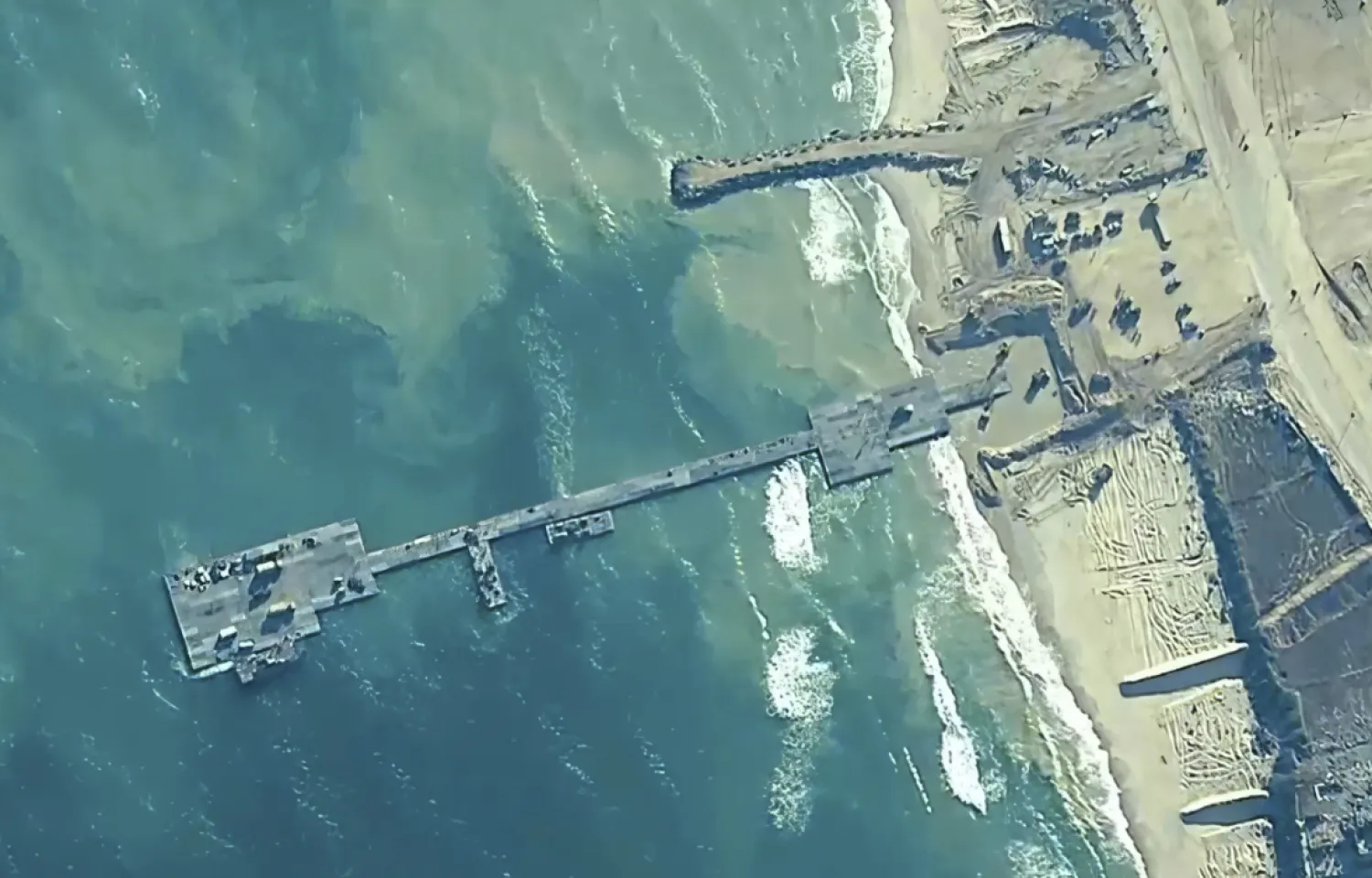The first aid from an American-built pier arrived in Gaza on Saturday since storm damage required repairs to the project, the US military said, relaunching an effort to bring supplies to Palestinians by sea that had been plagued with problems.
The pier constructed by the US military was operational for only about a week before it was blown apart in high winds and heavy seas on May 25. A damaged section was reconnected to the beach in Gaza on Friday after being repaired at an Israeli port.
About 1.1 million pounds (492 metric tons) of humanitarian aid was delivered to Gaza through the pier on Saturday, US Central Command said in a statement. It reiterated that no US military personnel went ashore in Gaza. The US Agency for International Development works with the UN World Food Program and their humanitarian partners in Gaza to distribute food and other aid coming from the US-operated pier, The AP reported.
“The temporary pier on the coast of Gaza was put in place for one purpose only, to help move additional, urgently needed lifesaving assistance into Gaza,” the US military said.
USAID said in a separate statement that no humanitarian workers were involved in the Israeli operation.
“Humanitarian aid workers in Gaza are operating in extremely difficult and insecure conditions and must be protected,” the agency said by email. “Aid workers operate under the humanitarian principles of humanity, neutrality, impartiality and independence.”
The movement of aid through the pier brings back online one way to get desperately needed food and other emergency supplies to Palestinians trapped by the eight-month-old Israel-Hamas war. Israeli restrictions on land crossings, and fighting, have greatly limited the flow of food and other vital supplies into the territory.
The damage to the pier had been the latest stumbling block for the project and the persistent struggle to get food to starving Palestinians. Three US service members were injured, one critically, and four vessels were beached due to heavy seas.
Early efforts to get aid from the pier into the Gaza Strip also were disrupted as crowds overran a convoy of trucks that aid agencies were using to transport the food, stripping the cargo from many of them before they could reach a UN warehouse. Officials responded by altering the travel routes, and aid began reaching those in need.
Vice Adm. Brad Cooper, deputy commander of US Central Command, told reporters on Friday that the lessons learned from that initial week of operations made him confident greater amounts of aid could be delivered now.
He said the goal was to get to 1 million pounds of food and other supplies moving through the pier into Gaza every two days. To date, about 3.5 million pounds of humanitarian aid has been delivered through the maritime route, Central Command said Saturday.
Relief agencies have pressed Israel to reopen land routes that could bring in all the needed aid. Israel says it has allowed hundreds of trucks to enter through a southern checkpoint and pointed the finger at the UN for not distributing aid. The UN says it is often unable to retrieve the aid because of the security situation.
UN agencies have warned that over 1 million Palestinians in Gaza could experience the highest level of starvation by the middle of next month if hostilities continue.









